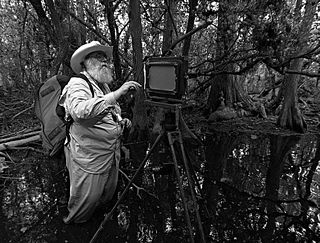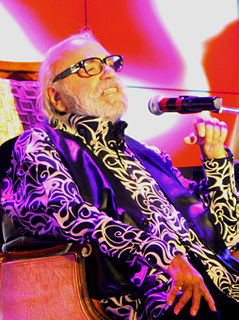A Quote by Sam Harris
A kernel of truth lurks at the heart of religion, because spiritual experience, ethical behavior, and strong communities are essential for human happiness. And yet our religious traditions are intellectually defunct and politically ruinous. While spiritual experience is clearly a natural propensity of the human mind, we need not believe anything on insufficient evidence to actualize it.
Quote Topics
Anything
Because
Behavior
Believe
Clearly
Communities
Essential
Ethical
Ethical Behavior
Evidence
Experience
Happiness
Heart
Human
Human Happiness
Human Mind
Insufficient
Intellectually
Kernel
Mind
Natural
Need
Our
Politically
Propensity
Religion
Religious
Religious Traditions
Spiritual
Spiritual Experience
Strong
Traditions
Truth
While
Related Quotes
The truth of who we are has nothing to do with religion or the type of car that we drive or the color of our skin. We are spiritual beings having a human experience. And the human experience part is very temporary. So, things like the bar, love, magic, dancing, and colors are there to remind us to not take all of this stuff so seriously.
Anthroposophy is a path of knowledge, to guide the spiritual in the human being to the spiritual in the universe... Anthroposophists are those who experience, as an essential need of life, certain questions on the nature of the human being and the universe, just as one experiences hunger and thirst.
The religion of the future will be a cosmic religion. It should transcend a personal God and avoid dogmas and theology. Covering both the natural and the spiritual, it should be based on a religious sense arising from the experience of all things, natural and spiritual, as a meaningful unity. Buddhism answers this description.
There is a fundamental spiritual quality to gratitude that transcends religious traditions. Gratitude is a universal human experience that can seem to be either a random occurrence of grace or a chosen attitude to create a better experience of life; in many ways it contains elements of both. Grateful people sense that they are not separated from others or from God; this recognition of unity with all things brings a deep sense of gratefulness, whether we are religious or not.
It is my fundamental conviction that compassion - the natural capacity of the human heart to feel concern for and connection with another human being - constitutes a basic aspect of our nature shared by all human beings, as well as being the foundation of our happiness. All ethical teachings, whether religious or nonreligious, aim to nurture this innate and precious quality, to develop it and to perfect it.
Material objects give rise to physical happiness, while spiritual development gives rise to mental happiness. Since we experience both physical and mental happiness, we need both material and spiritual development. This is why, for our own good and that of society we need to balance material progress with inner development.
Finally, if you still are growing, you reach the highest archetype, the archetype of the spirit. This is the time when you finally realize what Jesus meant when he said, "You are in this world, but you are not of this world." You are not here as a human being having a spiritual experience, but the reverse is true: All of us here are spiritual beings having a human experience.
Wilderness, to me, is a spiritual necessity. The mysterious spiritual experience of being close to natural restored my soul [after the death of his son]. My experience reinforced by dedication to use the art of photography as an inspiration for others to work together to save nature's places of spiritual sanctuary for future generations.
(Because) the notion of absolute truth is difficult to sustain outside the context of religion, ethical conduct is not something we engage in because it is somehow right in itself but because, like ourselves, all others desire to be happy and to avoid suffering. Given that this is a natural disposition, shared by all, it follows that each individual has a right to pursue this goal. Accordingly, I suggest that one of the things which determines whether an act is ethical or not is its effect on others' experience or expectation of happiness.






























